Rethinking Gut Health Beyond Probiotics
Gut health is having its moment, and rightfully so. From bloating and irregularity to immune dysregulation and brain fog, more people are discovering that when the gut struggles, everything downstream can unravel.
For decades, probiotics have dominated the conversation. But now, an unlikely contender is emerging: Turkey Tail mushroom. Backed by both traditional use and modern immunological science, Turkey Tail offers an approach to gut health that’s more foundational than familiar.
This article unpacks how Turkey Tail compares to probiotics, not to discredit one, but to offer a more complete picture of what true gut resilience might look like.
What Are Probiotics And Where Do They Fall Short?
Probiotics are live microorganisms, usually strains of Lactobacillus, Bifidobacterium, and a few yeasts, delivered in capsules, powders, or functional foods. The theory is simple: restore microbial balance by repopulating the gut with “good bacteria.”
And in some contexts, they do offer short-term support. Probiotics have been shown to help reduce antibiotic-associated diarrhea, support some forms of IBS, and rebalance the gut after acute infections.
However, the probiotic model has critical limitations:
- Fragility and Survival: Most strains are highly sensitive to stomach acid, temperature, and moisture. Many don’t survive long enough to colonize the gut.
- Strain-Specific Effects: Benefits are not universal, only a handful of strains are clinically studied, and results vary person-to-person.
- Temporary Gains: Once supplementation stops, so do the benefits. They rarely build lasting microbial resilience.
- Narrow Scope: Probiotics target symptoms, but not the deeper terrain issues like gut lining integrity, immune tolerance, or microbial diversity.
In essence, probiotics are like introducing new guests to a party; without addressing the lighting, music, or energy in the room. Sometimes it works. Often, it doesn’t last.
Enter Turkey Tail: A Mushroom That Feeds the Terrain
Turkey Tail (Trametes versicolor) isn’t a probiotic. It’s a prebiotic-rich, immune-modulating adaptogen and that changes everything.
Rather than seeding the gut with new microbes, Turkey Tail nurtures the native ecosystem already present in your microbiome. It supports a healthier terrain by feeding beneficial bacteria, calming inflammation, and enhancing the gut’s own capacity to heal.

So what’s inside Turkey Tail that makes this possible?
1. Beta-D-Glucans
These are non-digestible fibers that act as fuel for gut flora. But not all fiber is equal, beta-glucans specifically encourage growth of Bifidobacteria and Lactobacillus, the same bacteria probiotics try to introduce. The difference? Your body is feeding its own flora, not renting a foreign strain.
2. PSP & PSK (Polysaccharide Peptide & Krestin)
These rare protein-bound polysaccharides are unique to Turkey Tail and have been widely studied in Japan and China for their immune-regulating properties. PSP and PSK are known to reduce inflammation, enhance NK cell activity, and improve communication between the immune system and gut microbiota.
3. Antioxidant Phenols
The gut lining is sensitive to oxidative stress. Turkey Tail’s polyphenols help protect the epithelial barrier, reduce gut permeability, and support a healthier mucosal environment where good microbes can thrive.
In short, Turkey Tail isn’t dropping in outsiders, it’s coaching your existing flora to perform better, while strengthening the gut walls they rely on.
What Does the Research Actually Say?
Unlike many “superfoods” that rest on folklore and marketing fluff, Turkey Tail’s gut-supportive role is supported by multiple clinical and preclinical studies.
- A 2014 study found that Turkey Tail supplementation significantly increased levels of Bifidobacterium and Lactobacillus in human participants after 8 weeks, along with improvements in SCFA (short-chain fatty acid) production, key markers of gut health.
- Another trial demonstrated that PSK improved microbial diversity in cancer patients undergoing chemotherapy, suggesting it supports resilience even under extreme immune stress.
- Animal studies show enhanced mucosal immunity and a reduction in inflammatory cytokines after Turkey Tail administration, pointing toward systemic effects that go beyond digestion.
Importantly, these outcomes aren’t just about more bacteria, but a better environment for microbial cooperation, immune balance, and digestion.
Is Turkey Tail Better Than Probiotics?
This isn’t a rivalry. It’s a reframing.
Probiotics can offer relief, especially in acute situations or following antibiotic therapy. But their role is often temporary and symptomatic.
Turkey Tail, on the other hand, is ecosystem medicine. It operates through the gut-immune axis, builds microbial integrity from the inside out, and supports the natural intelligence of your microbiome rather than overriding it.
Here’s a useful way to think about it:
|
Mechanism |
Probiotics |
Turkey Tail |
|
Adds new bacteria |
✔️ Yes |
❌ No – works with native flora |
|
Supports gut lining integrity |
❌ Limited |
✔️ Yes – antioxidant + immune support |
|
Long-term microbial resilience |
⚠️ Depends on usage |
✔️ Encouraged via beta-glucans |
|
Immunomodulation |
❌ Not primary function |
✔️ Strong evidence via PSK/PSP |
|
Strain-specific effects |
✔️ Often |
❌ Works systemically, not strain-bound |
So, better?
If you’re looking for long-term gut transformation, immune synergy, and terrain-based healing, Turkey Tail is likely the stronger, more intelligent tool.
How to Choose the Right Turkey Tail Supplement
Not all Turkey Tail supplements are created equally. Many contain only mycelium on grain (cheap filler), lack beta-glucan standardization, or skip extraction altogether—meaning your body gets wood dust, not functional benefits.
Here’s what to look for:
- ✅ Fruiting body – no starch, no grain
- ✅ Hot water extraction – to unlock beta-glucans and PSP/PSK
- ✅ Standardized beta-glucan content (30% or more)
- ✅ Third-party lab testing – transparency is everything
- ✅ No synthetic fillers, binders, or flow agents
- ✅ Read the supplement label. Don't know how? Read more here
Antioxi’s Turkey Tail is triple-verified, 62% beta-glucans, and made from fruiting body, with no filler, no fluff, just pure potency and function.
Final Thoughts: Maybe It’s Not About Probiotic vs Mushroom - But Probiotics vs Progress
If you’ve been relying on probiotics alone and still struggling with bloating, fatigue, or digestive drama, it might be time to go deeper. Turkey Tail invites a different model; one built on supporting the gut’s wisdom, not outsourcing it to lab-grown bacteria.
And the results? More balance. More resilience. And a gut that doesn’t just survive, but adapts.
Ready to Make the Shift?

✅ Explore Antioxi’s Turkey Tail Extract
✅ Book a 1:1 Consult
Because your gut isn’t just a battleground.
It’s an ecosystem.
Let’s treat it like one.

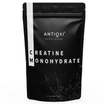
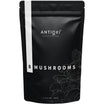
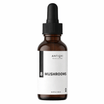
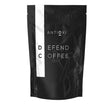
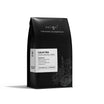
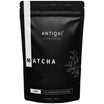
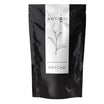
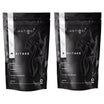

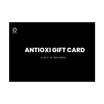
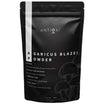
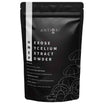
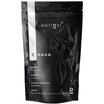
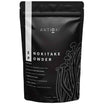
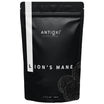
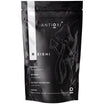
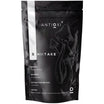
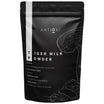
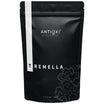
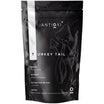


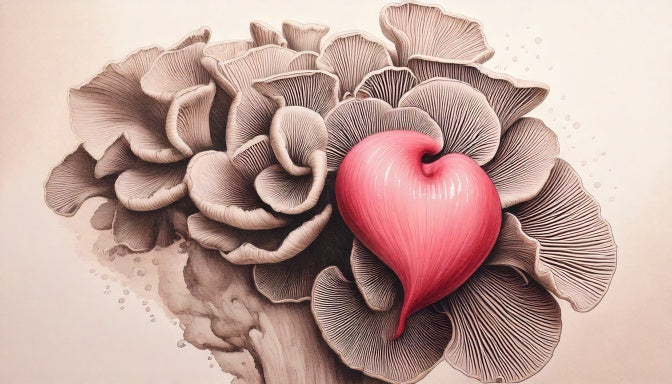
Leave a comment
All comments are moderated before being published.
This site is protected by hCaptcha and the hCaptcha Privacy Policy and Terms of Service apply.